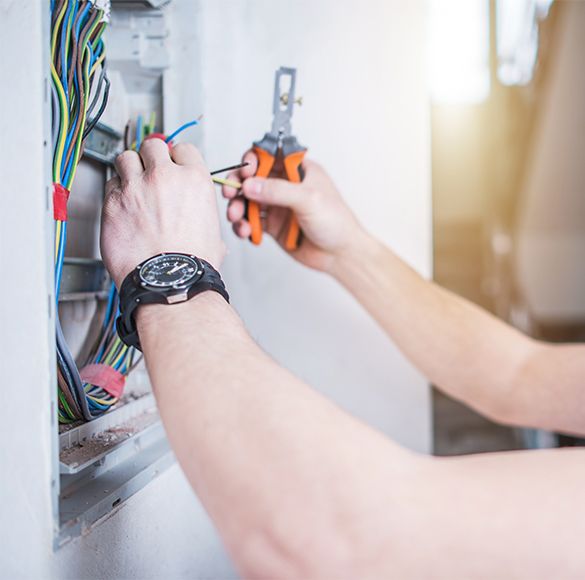CCTV Systems For Homes
CCTV Installation Blackheath
CCTV is almost everywhere, and has long been a fixture in banks, shops, car parks and other public spaces. In recent times though, it has become more common to have high quality CCTV installed in homes due to prices being a lot more competitive and affordable. This is also in part due to easier installation as well as security-conscious homeowners feeling CCTV is a necessary home security system.
Cameras may be purchased on their own, or as a part of a package of a DIY security arrangement. Costs range from as little as £20 from some suppliers for a basic camera to potentially many hundreds of Pounds more, depending on the quality and the features.
CCTV remains an effective deterrent for home break ins and vandalism of both residential and commercial properties. If you want to don’t want to splash out too much on CCTV however, it is possible to find lower priced systems or to purchase dummy cameras that are visible and therefore may well deter potential burglars and intruders, with the authentic camera(s) situated in a more discreet place.
CCTV tends to perform much more effectively as a security feature in conjunction with other security devices such as burglar alarms which can be easily and efficiently provided by the team at Electricians Blackheath, gravel around the property, door and window locks and security lights no name but a few.
Types of CCTV for Residential Premises
The security challenges faced by homeowners and residential property owners and tenants is a lot more acute than that for commercial and business premise residents. Whilst a business premise or commercial property may install all nature of bars and shutters in addition to sophisticated alarm systems, this may not be possible for a residential tenant for various reasons. For example, the security features utilised for commercial premises may well be tax deductible business expenses whereas for a home they are simply expenses.
Indoor cameras come in 4 main categories; wired, wireless, IP and powerline networked:
Powerline Networked CCTV System – Powerline networked CCTV Systems plug into electrical sockets and transmit images to a dedicated storage device such as a hard drive.
Wired home CCTV systems – Wired home CCTV systems are the cheapest, and most common type of camera. The wire plugs into the monitor directly from the camera. However, there are downsides to this type of camera. It can for example be difficult to install with all the wires, extension cables and connectors – so you may need to get a professional in to install it for you.
Wireless Home CCTV systems – With a wireless home CCTV system, the images are transmitted using digital or analogue technology to your computer, mobile phone or tablet. Available with a lot of smart security cameras is an app which you can download on your mobile phone or tablet. From there, you can easily monitor your property when you are out or even just in a different room. Digital and smart cameras are often a bit more expensive, but usually offer significantly better quality.
A downside of using a wireless CCTV device is that it can suffer interference from other (mainly) wireless devices such as cordless phones, Wi-Fi routers and even microwaves in some cases. It may also find signals being blocked by metal objects or heavy masonry. The filming of the camera will be disrupted if internet connection is lost.
IP CCTV System – The IP CCTV system uses your internet connection or network to send the images from the camera to a computers router. That way, you can access the footage from wherever you are over the internet, including when abroad. Some systems allow you to set up an email or text alert when the camera is activated by detected motion.
Outdoor Home CCTV Cameras
If you are considering purchasing a CCTV system for the outside of your home, you will have to comply with UK privacy laws. This really entails making sure the camera is not pointing at other peoples’ properties and houses, gardens or driveways. It may be an idea to discuss your plans for CCTV on the outside of your property with your neighbours. In some areas and communities, neighbours may well choose to share CCTV systems with each other to save money.
Furthermore, you should make sure that any outside cameras are weatherproof. An IP (international protection) rating of at least 66 is recommended. Whilst wireless cameras are available, they will still need to run a cable to a power source.
Make sure you position cameras where they cannot be tampered with, but can still be accessed for cleaning and/or repairs. You can buy vandal proof cameras, but these tend to cost a bit more.
